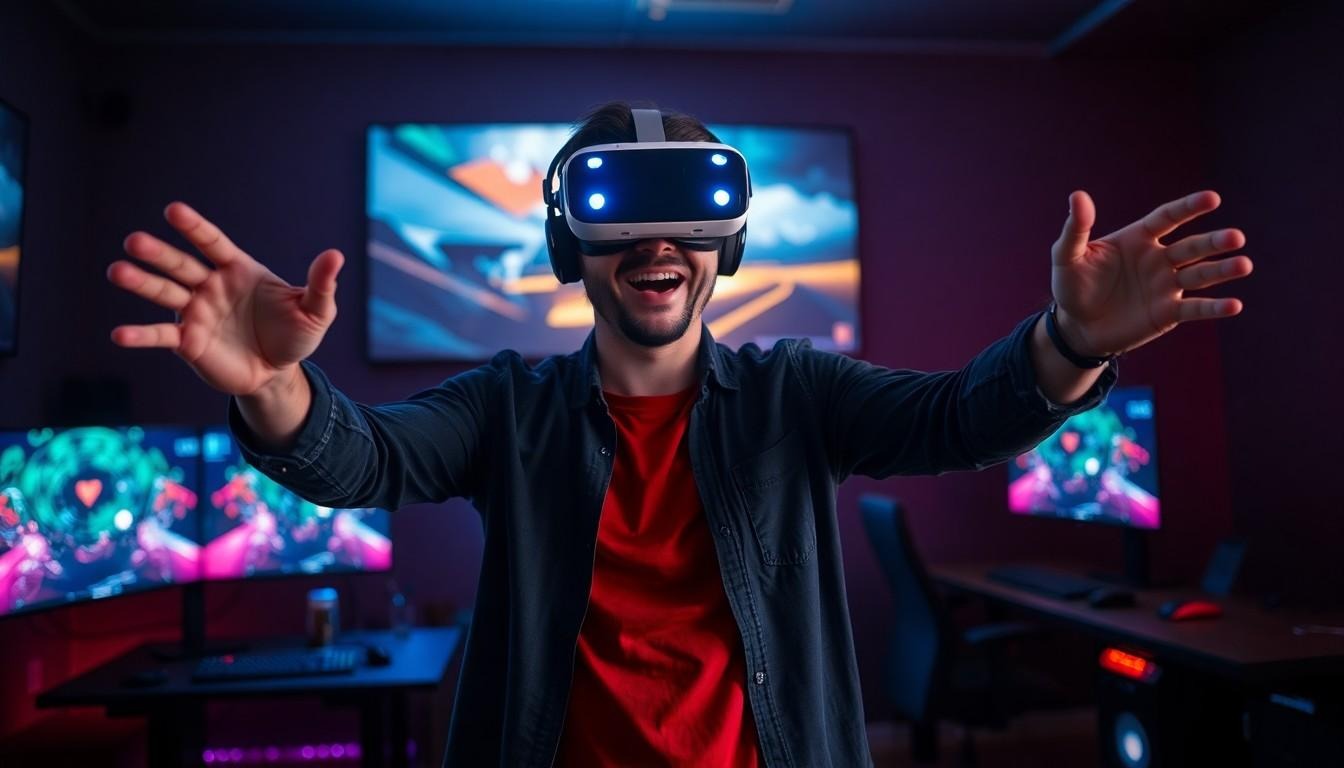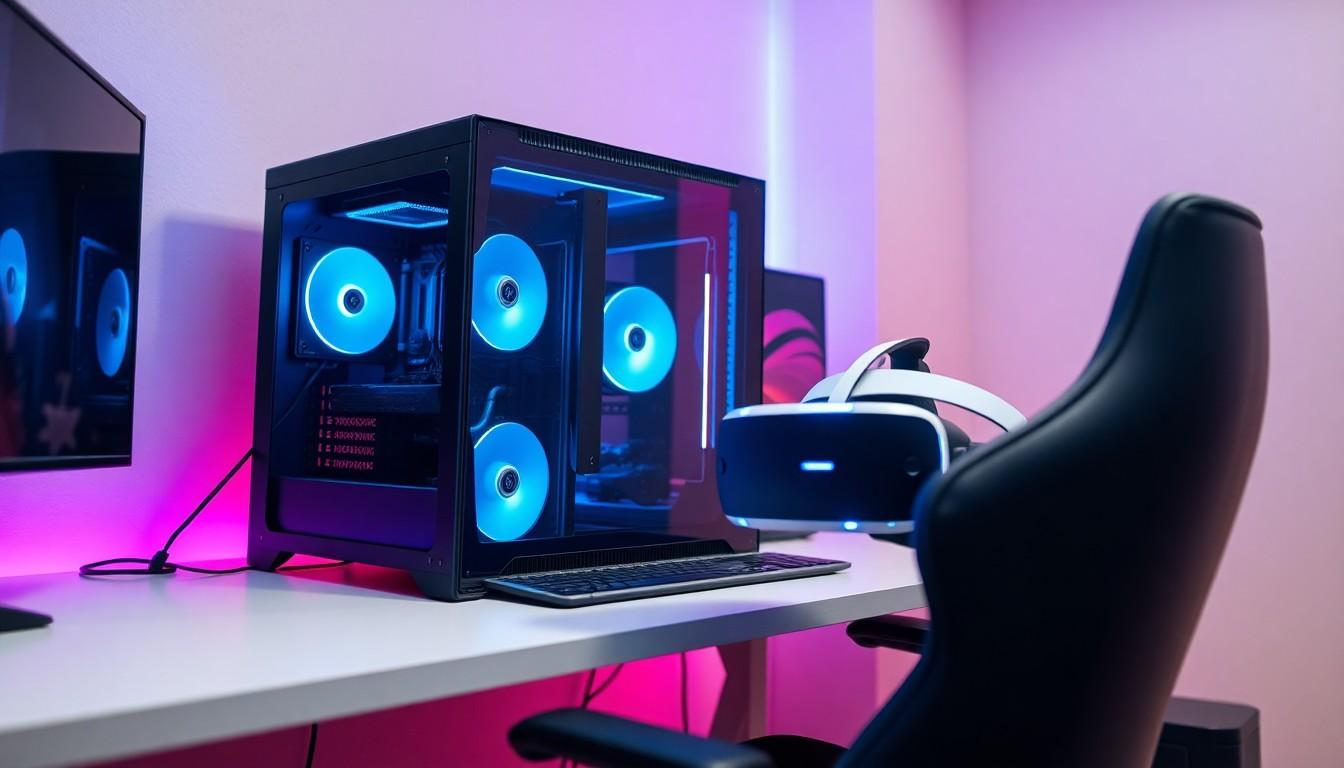Phone:
(701)814-6992
Physical address:
6296 Donnelly Plaza
Ratkeville, Bahamas.

Virtual reality gaming isn’t just a trend; it’s a mind-bending journey into worlds where anything is possible. But to truly immerse oneself in these fantastical realms, having the right CPU is crucial. Picture this: you’re dodging fireballs in a dragon-infested lair, but your CPU is lagging like it’s stuck in molasses. Frustrating, right?
VR gaming demands specific hardware capabilities to deliver an immersive experience. High frame rates are crucial for smooth gameplay, minimizing motion sickness, and enhancing realism. A minimum of 90 FPS is recommended for a pleasant VR experience.
Processing power plays a vital role in handling graphics and physics calculations. Multi-core processors, particularly those with at least four cores, significantly improve performance in VR environments. Games that push graphical limits often require higher clock speeds and more threads for optimal functioning.
Graphics processing units complement CPUs in VR gaming. Modern GPUs must support VR rendering requirements, such as low latency and high resolution, to ensure fluid movement and detailed visuals. NVIDIA and AMD leading the market typically offer GPUs designed specifically for VR experiences.
Memory capacity impacts performance as well. A system equipped with at least 16 GB of RAM handles multitasking more effectively, allowing for smoother transitions between applications during gaming sessions. Furthermore, faster RAM speeds can enhance overall system performance, supporting VR demands.
Storage solutions affect load times. Solid State Drives (SSDs) are highly preferred over traditional Hard Disk Drives (HDDs) for their rapid data access speeds, drastically improving load times and user experience in VR environments.
Compatibility and connectivity also matter. Ensuring that the chosen CPU, GPU, and other components are compatible with VR headsets and software is essential for an enjoyable gaming experience. Utilizing USB and HDMI ports must also align with headset requirements for optimal functionality.

When choosing a CPU for VR gaming, several key features significantly impact performance. Understanding these characteristics helps in making an informed decision.
Performance metrics play a vital role in VR gaming. Look for CPUs with high clock speeds, generally at least 4 GHz, to ensure quick processing. Core count matters too; opt for multi-core processors, preferably with at least six cores, to manage simultaneous tasks effectively. Thermal Design Power (TDP) impacts cooling efficiency; CPUs with lower TDP ratings usually run cooler. Consider processors with robust single-thread performance, as many VR gaming applications rely on it. Benchmark scores from trusted sources indicate how well a CPU performs in real-world scenarios.
Compatibility with VR headsets is crucial for seamless gaming experiences. Ensure the CPU supports the specific VR hardware being used; check manufacturer recommendations for optimal performance. Confirm that the CPU has adequate connectivity options, such as PCIe lanes for GPUs, to support powerful graphics cards. Systems running Intel or AMD processors often require different chipsets, so verifying compatibility with the motherboard is essential. Additionally, various VR software platforms have specific CPU requirements that should be matched for the best experience.
Selecting the right CPU enhances the VR gaming experience significantly. As performance impacts immersion, certain models stand out among the competition.
Intel Core i9-13900K delivers exceptional performance with 24 threads and high clock speeds of up to 5.8 GHz. AMD Ryzen 9 7950X also excels, featuring 16 cores and 32 threads for intense multitasking. Both options support the most demanding VR titles while ensuring smooth frame rates. These processors offer sufficient power for advanced graphics calculations, making them ideal for gamers seeking top-tier performance.
AMD Ryzen 7 5800X features 8 cores and 16 threads, achieving clock speeds of 4.7 GHz. Intel Core i7-12700K provides 12 cores, combining performance and efficiency to handle multiple tasks effectively. Each processor supports high frame rates required for VR, striking an excellent balance between cost and performance. Gamers will appreciate the combination of power and affordability in these models.
AMD Ryzen 5 5600X offers 6 cores and 12 threads, operating efficiently at a base frequency of 3.7 GHz. Intel Core i5-12400 features 6 cores as well, delivering performance without excessive costs. Both choices represent strong candidates for VR gaming on a budget, achieving solid performance in many popular titles. These processors ensure gaming remains enjoyable without overspending on high-end hardware.
Selecting the ideal CPU for VR gaming involves several key considerations. First, assess performance requirements based on the particular games and applications. Look for high clock speeds, aiming for at least 4 GHz, which enhances responsiveness during gameplay.
Evaluate the core count next, as having at least six cores helps manage multiple tasks. A higher core count ensures smoother performance, especially in demanding VR environments. Analyze your multitasking needs when considering RAM, with 16 GB being the minimum for effective performance.
Don’t overlook Thermal Design Power (TDP), which influences cooling solutions. Efficient cooling enables consistent performance over longer gaming sessions, reducing overheating risks. Verify compatibility with VR headsets as requirements may vary from one platform to another.
Examine connectivity options, ensuring your CPU supports adequate PCIe lanes for the GPU. This support minimizes bottlenecks, allowing for better data flow between components. Research specific gaming titles that will be used to identify any unique recommendations from developers.
Compare brand preferences, such as Intel and AMD, as each offers distinct advantages. Intel focuses on single-threaded performance, while AMD processors excel in multi-core capabilities. Ensure that your chosen CPU aligns with your budget while still meeting performance expectations.
Prioritize your needs to match CPU features with desired gaming experiences. Understanding these aspects simplifies the selection process, ensuring that the final choice enhances your VR gaming adventure.